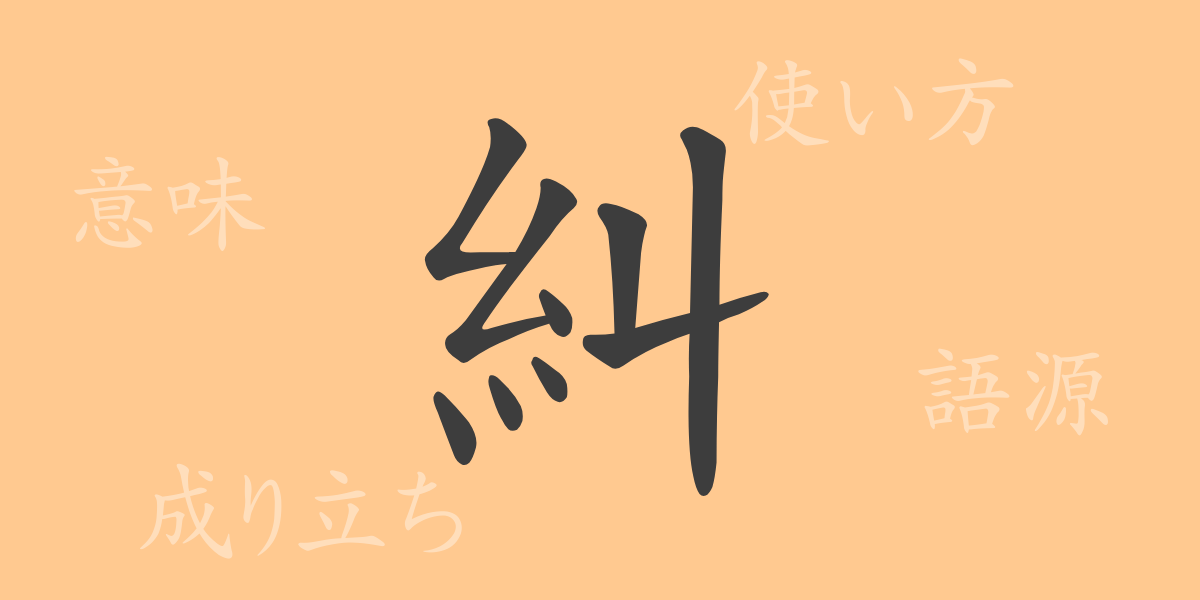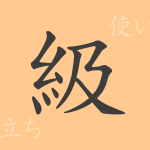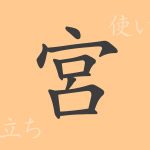The characters of the Japanese language are imbued with deep meaning and history in each stroke. The commonly used kanji “糾(きゅう, kyū)” is no exception. In this article, we will uncover the charm of “糾(きゅう, kyū)” and delve into its origins, modern usage, and more. Although you might not see “糾(きゅう, kyū)” often in daily life, the more you learn about it, the more intriguing it becomes.
Origin of 糾(きゅう, kyū)
The kanji “糾(きゅう, kyū)” evolved from an ideogram depicting the process of making braided cords. In ancient Chinese texts, it represented intertwined threads and came to signify the gathering of people for discussions, thus associating it with assemblies or gatherings. This fundamental meaning has remained consistent over time and continues to represent similar concepts in modern Japanese.
Meanings and Usage of 糾(きゅう, kyū)
“糾(きゅう, kyū)” is primarily used in terms such as “紛糾(ふんきゅう, funkyū)” and “糾明(きゅうめい, kyūmei),” which mean to correct confusion or errors and to clarify facts, respectively. It also appears in expressions related to gathering, binding, or investigating. In Japanese, “糾(きゅう, kyū)” is often found in formal contexts, such as legal or business documents.
Readings, Stroke Count, and Radical of 糾(きゅう, kyū)
The kanji “糾(きゅう, kyū)” expands the expressive range of the Japanese language through both its form and meaning.
- Reading: The on-yomi (Chinese reading) is “キュウ(きゅう, kyū).” There is no kun-yomi (Japanese reading).
- Stroke count: “糾(きゅう, kyū)” consists of 9 strokes.
- Radical: The radical is 糸(いとへん, itohen), which means thread.
Idioms, Proverbs, and Expressions Using 糾(きゅう, kyū)
Idioms and proverbs containing “糾(きゅう, kyū)” often derive their meanings from the kanji’s imagery. For example, “糾弾(きゅうだん, kyūdan)” means to harshly criticize or denounce errors or injustices, while “紛糾(ふんきゅう, funkyū)” signifies a situation becoming entangled and confused. These idioms are frequently used in news and reports, symbolizing the pursuit of fairness and truth.
Summary of 糾(きゅう, kyū)
The kanji “糾(きゅう, kyū)” is an essential element of Japanese expression due to its rich history and meaning. Although it may not be commonly seen, it plays a significant role in legal and business contexts. We hope this article has provided a deeper understanding of “糾(きゅう, kyū)” and enriched your knowledge of the Japanese language.

























